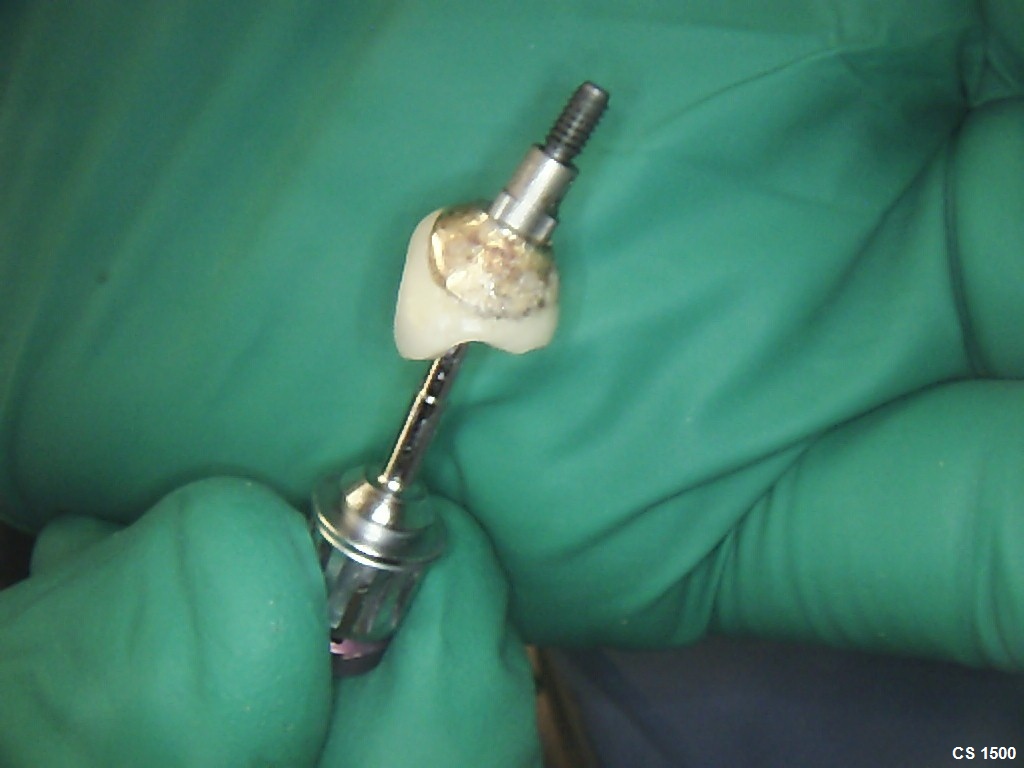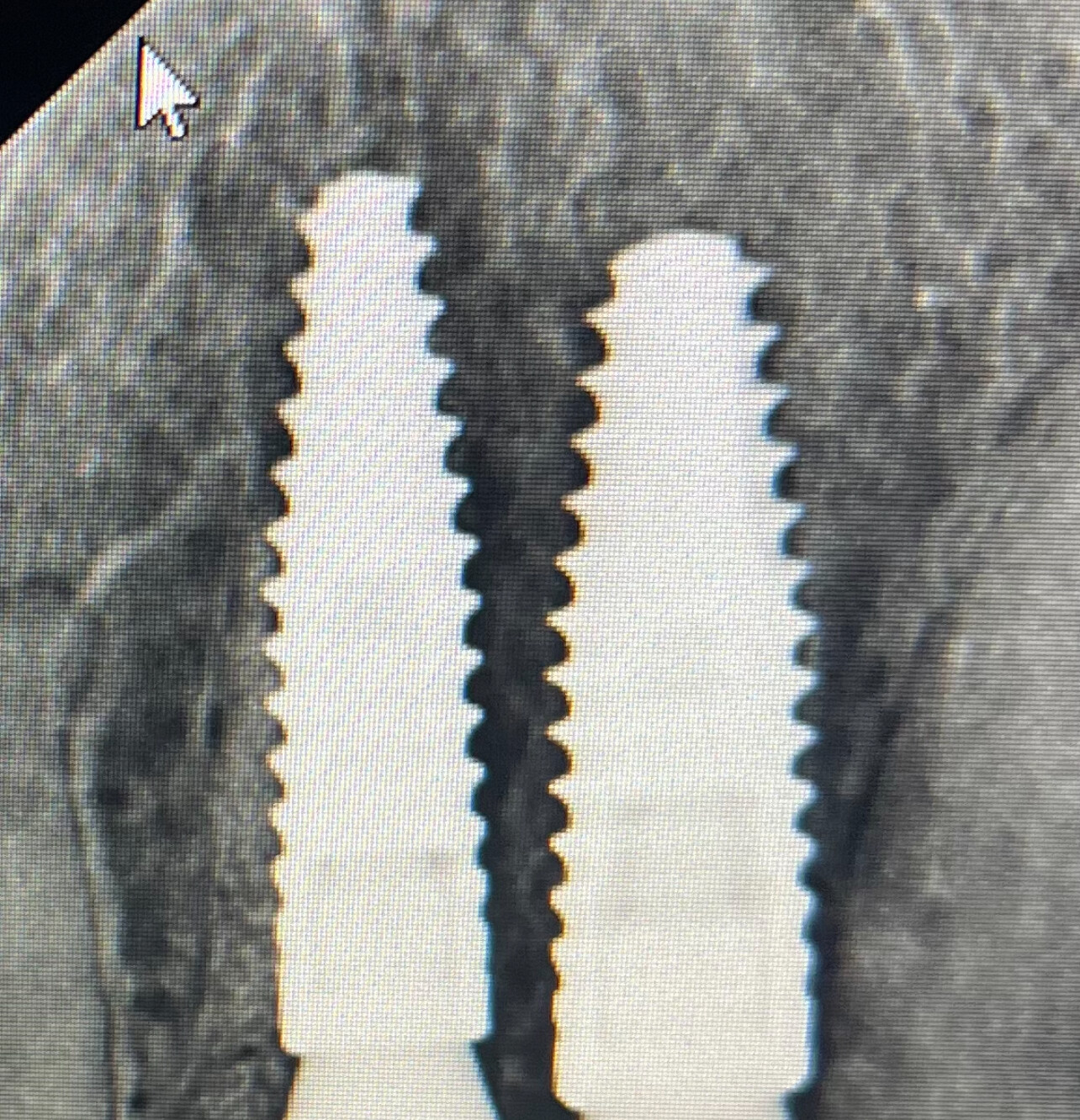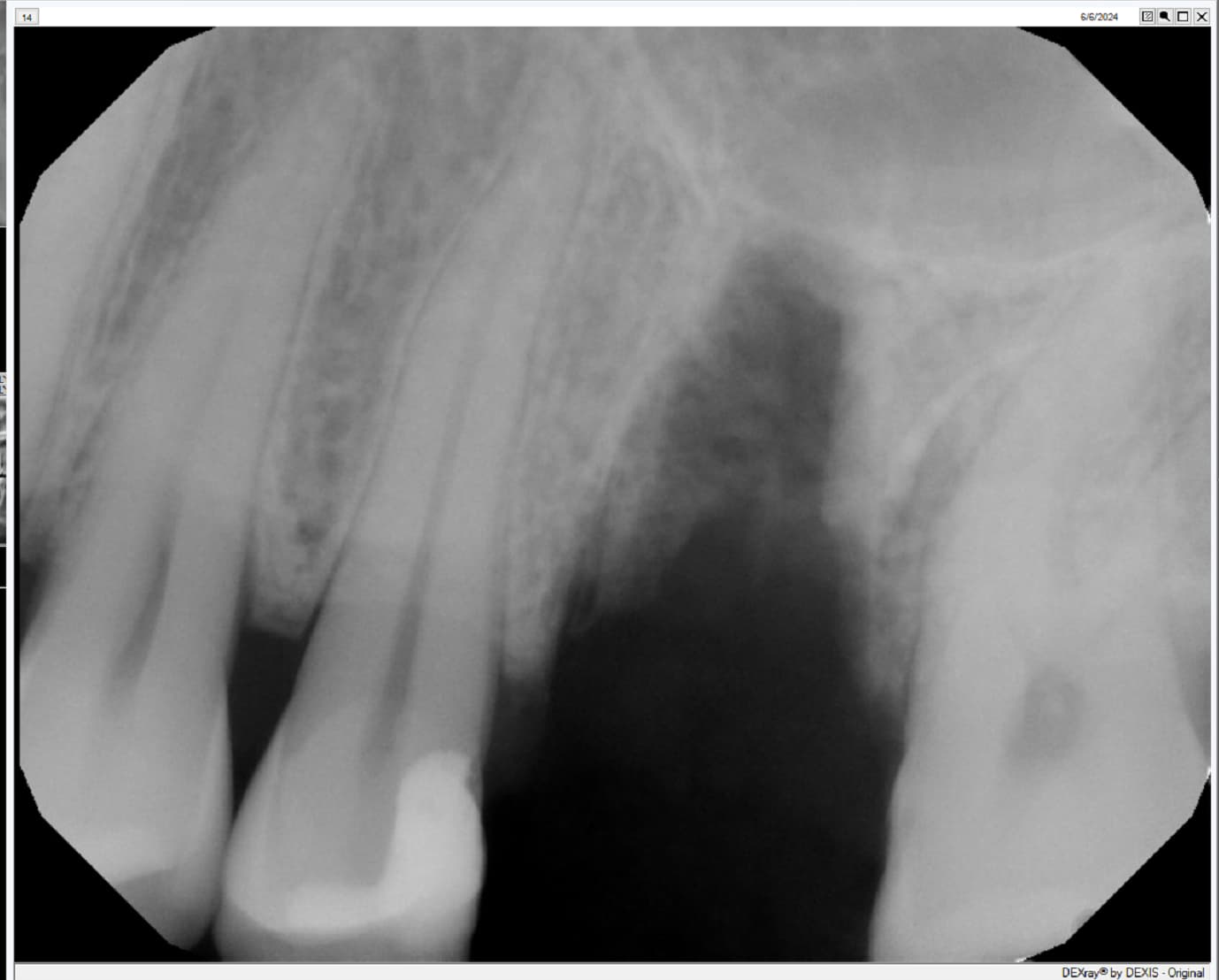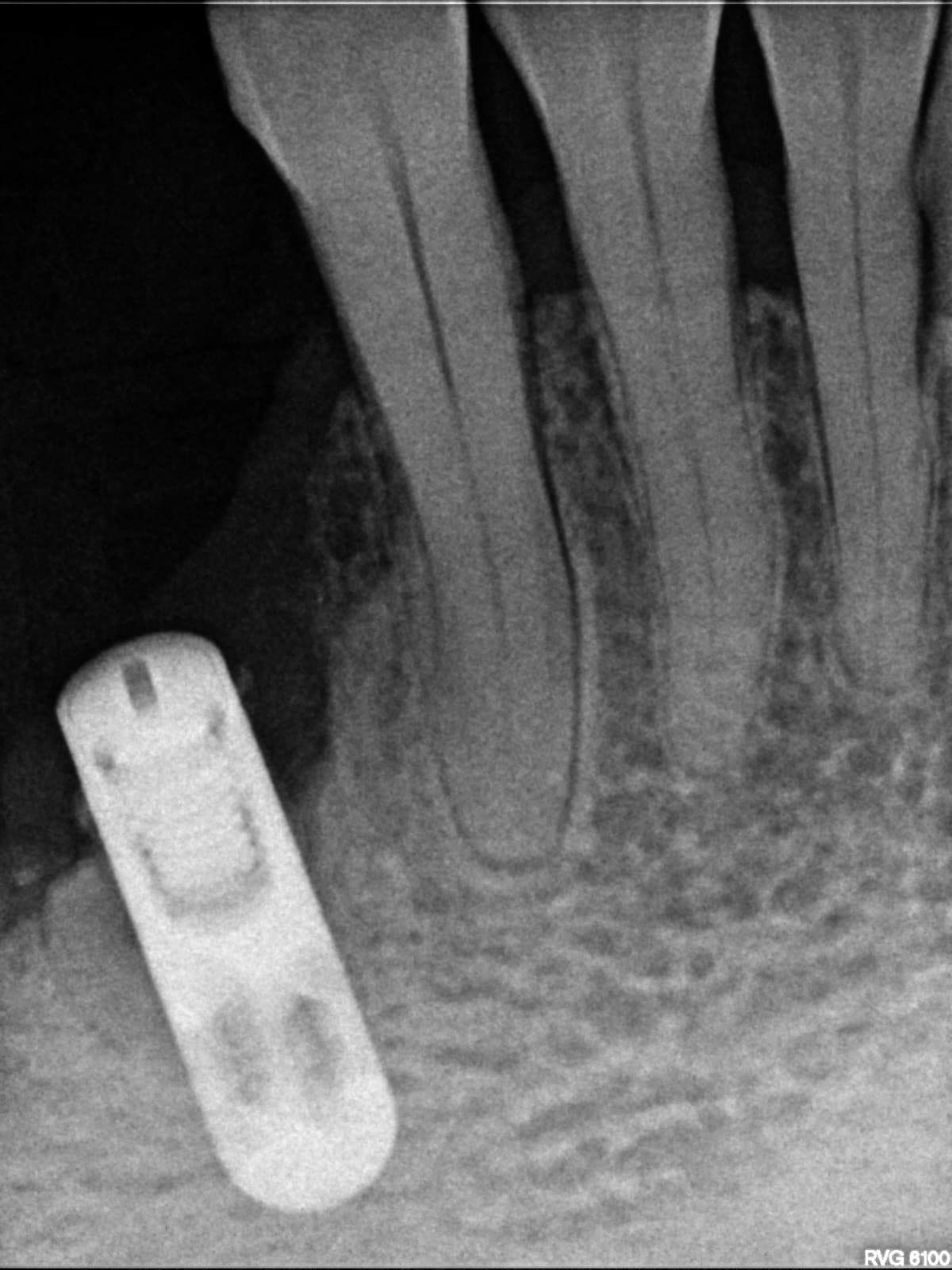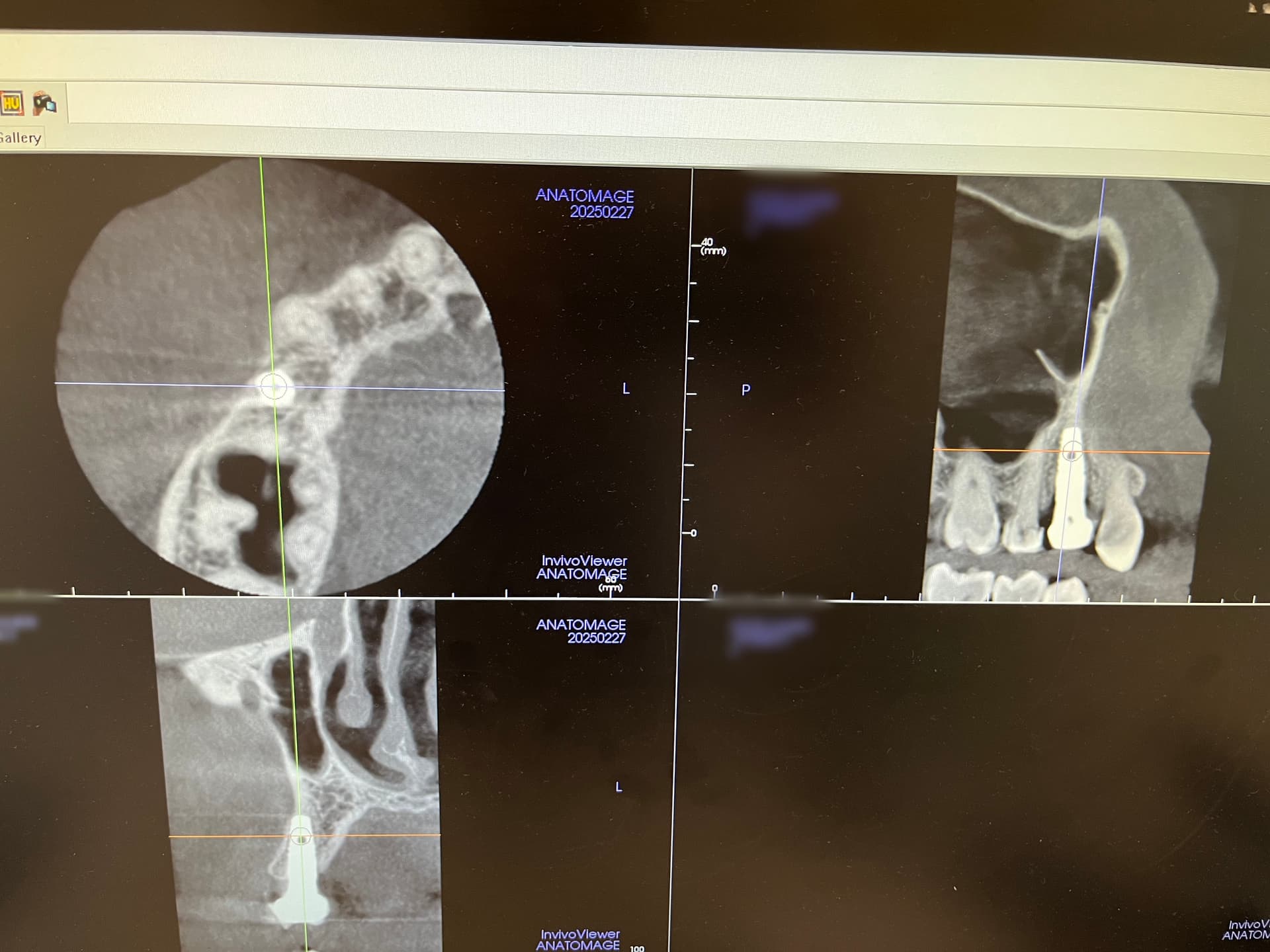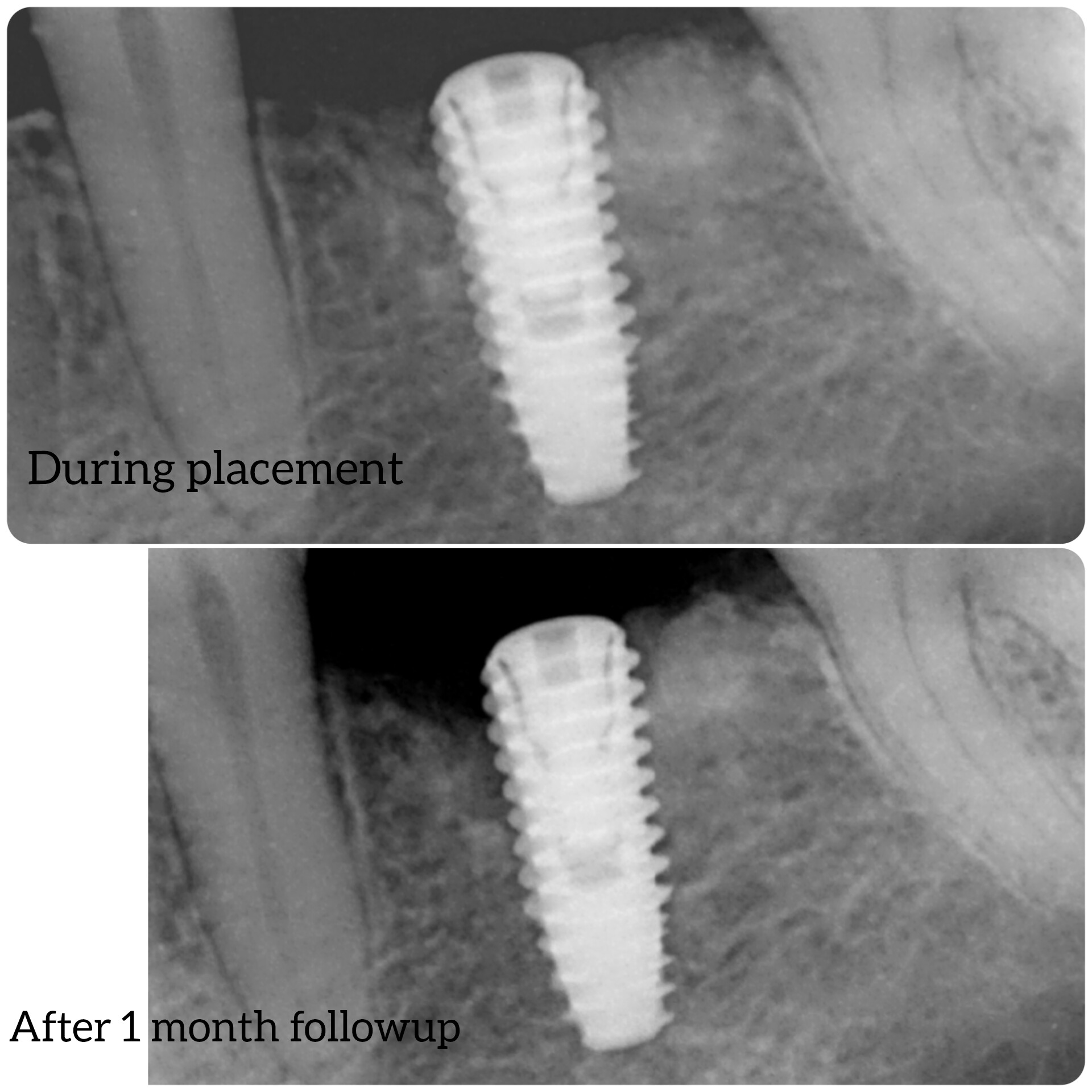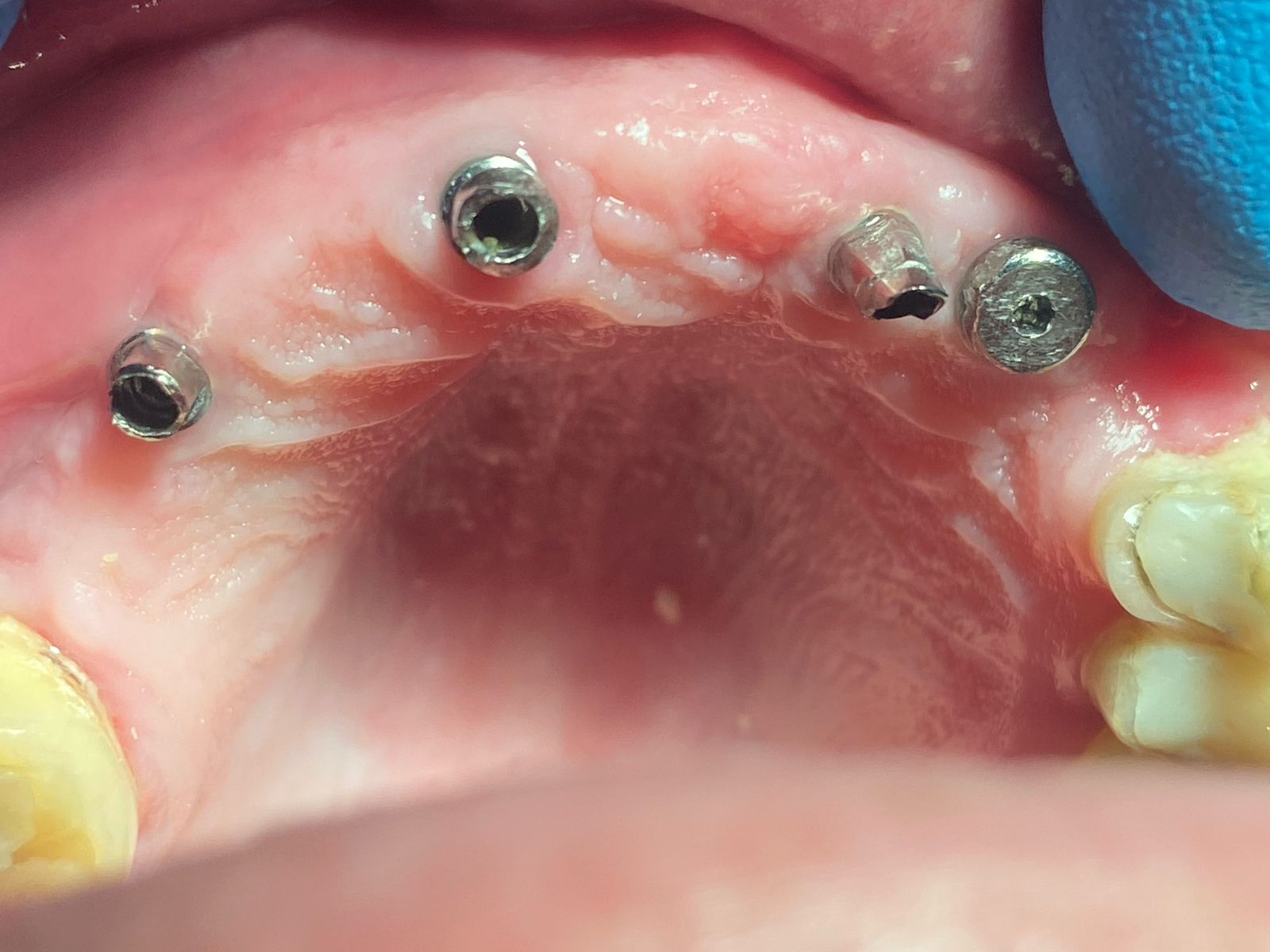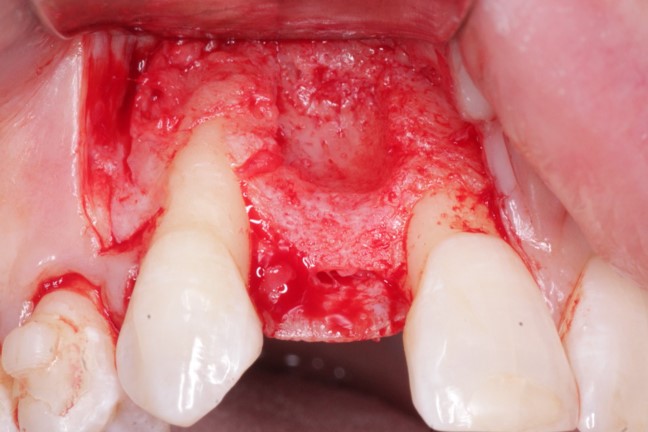CTX Level: What Level is Risky?
Dr. C. asks:
I have a patient that requires 2 mandibular extractions and is interested in dental implant replacements. She has been taking Actonel for more than 3 years. I ordered serum CTX study which returned with a level of 137. According to Marx, this puts her in the moderate risk category.
I currently have started her on a 3 month drug holiday, and am planning to do the extractions soon after that. I am going to wait to place dental implants until I assess complete healing of the extraction sites in 4-6 months. Does anyone know of any value in retesting the CTX after a drug holiday period? Do you have any thoughts / recommendations regarding this treatment plan based on any experience with patients with CTX levels
19 Comments on CTX Level: What Level is Risky?
New comments are currently closed for this post.
Dinh X. Bui
12/11/2007
I have place implant in patient with Actonel. First, evaluate the healing of extraction site for tissue necrosis (usually bone exposure). Second, contemplating on doing the implant procedure flapless since you already visualize the extraction site (implant site) during the extraction. Flapless technique is the way to go with these patients.
Bruce Bay area OMFS
12/11/2007
I would bet after 4 months her CTX level will be significantly higher. Eventhough the oral drugs have a very long half life, my experience has been that the CTX bounces back a lot faster than patients that were on the intravenous form and that is consistent even with patient on much greater than 36 months. Minimizing bone insults, flapless, reduce heat, avoid over-torquing, and antibiotics pre and post surgery should help.
However, I have one case that came across my desk to review for an attorney. Lost 19, treatment planned for an implant, fosamax 5 years and on low dose prednisone for arthritis. CTX 109, after 4 months 180, implant failed, ON occurred, progressed to Stage IIIb (pathological fracture) loss of mandibular body from K9 to mandibular angle. The case ended up settling as the crux of the argument was that the patient was not informed of the potential severity of the possible sequela of treatment in the face of bisphosphonate, failure to recognize that she had other co-morbidities and taking a drug, prednisone, that can exacerbate the problem and she had an excellent alternative, namely a bridge that wasn't explained to her well. So even with a good CTX, the entire patient must be taken under consideration and sometimes the older methods of tooth replacement are sometimes wiser. This case is unusual, but I will always remember it.
Bob
12/12/2007
I don`t know which assays Prof. Marx has in use to determine CTX values. The Least Significant Change for Resorption Markers like CTX is usually between 60-80%. There is one study in the literature which showed changes of up to 66 % for Serum CTX values during a single day !
It is pretty reasonable that patients with corticoid induced osteoporosis treated with Aminobisphosphonates are at a higher risk for ONJ.
The American Society for Bone and Mineral Research recently published a Statement on the whole Bisphosphonate/ ONJ issue. That statement has zero recommendation of the Marx Protocol.
Harper
12/12/2007
Recently heard Sal Roggerio talk at the AAOMS implant meeting. Because the serum CTX is a systemic measurement, it may not correlate with what happens in the jaws, therefore it may not be predictive of implant healing. He was not recommending the test proir to implant placement, but recommended a drug holidy prior to implant surgery and good informed consent. Marx was using serum CTX as a marker for recovery in those patients with Oral Bisphosphonate induced osteonecrosis of the jaws.
Dr. Mehdi Jafari
12/13/2007
The cross-linked carboxyterminal telopeptide (ICTP) is released by matrix metalloproteinase (MMP) cleavage of type I collagen, and its levels reflect MMP-mediated soft tissue degradation. Cathepsin K-mediated osteoclastic bone resorption destroys ICTP antigenicity, but, both the carboxyterminal (CTx) and the aminoterminal (NTx) telopeptide of type I collagen are generated by cathepsin K-mediated bone collagen degradation. Although CTx and ICTP appear to provide identical information, more scrutiny reveals that these two markers, although based on the same principle of detecting type I collagen telopeptides, may provide valuable differential information. For instance, both CTx and NTx levels are very low in patients suffering from pycnodysostosis, which is caused by a deficient activity of cathepsin K, whereas ICTP levels are high. In postmenopausal women, anti-bone resorption therapy by hormone replacement reduces serum CTx levels, whereas ICTP levels do not change.In order to repair the damaged tissue , collagen synthesis is increased, leading to increased tissue levels of the C-terminal propeptide of type II collagen. By the way, CTX-II can be used to monitor therapy effects: In osteoporosis patients, elevated CTX-II levels suggest that bisphosphonates are degrading not nly the bone but the cartilage as well.
3rd molar slayer
12/18/2007
for the ctx to be accurate you order it "morning fasting" serum c-telopeptide.
Mohamed Omar
12/20/2007
can any one send to me a recent paper about the CTx and BJBON,as I need more informatiom about that subject.
Thanks.
anon
1/7/2008
I have read that CTX levels should be 151 or higher in order to place dental implants. Is this accurate? Can I order this test or do I have to refer this to the patients’s physician to order it? How reliable is this test? I have several patients who have been taking bisphosphonates who need implants and I need to assess their risk levels. Thanks for any responses.
Brad Bynum
1/8/2008
You can get Marx's Book from Quintessence
Oral & Intravenous Bisphosphonate-Induced Osteonecrosis of the Jaws by Robert E. Marx, DDS
ISBN-13:978-0-86715-462-7
My interpretation of his book is, if the patient has been on Bis Phosphonates for less than 3 years and have no medical risk factors, you are probably safe with an informed consent on implants. On patients who have been on BP for more than 3 years he says oral surgery may be done with the numbers below, but he does not say is safe to do implants with CTX above 150; (I could have misinterpreted what he means however)
CTX 150 minimal to no risk
For patients on Fosamax for more than 3 years, at least 3 month "holiday" from Fosamax then CTX must be above 150. Keep patient off Fosamax for 3 months after healing. Then well documented informed consent. My attorney says you or your staff also must explain the informed consent not just have the patient sign it. The patient has to tell you they understood what you explained to them. In other words, the first question in the deposition will be,"Ms. Jones, Did Dr. Implant or one of his staff members go over this informed consent with you or did they just ask you to sign it?"
tim dpnley
1/8/2008
where can I find the asbmr statement? It is not readily available at their web site.
anon OMS
1/8/2008
Addionally, my own thought here is that BP drugs should be really be discontinued in close consultation w/ physician who is prescribing them -otherwise, it seems to me that you are opening yourself up for liability from the other end (eg; pt breaks hip following your d/c'ing of BPs)
I do think its the right thing to do for pts taking who have been taking these drugs for +3 years, just do it in concert w/ the MD. Since its at least a 3 month window, there is certainly time to consult...
Linda Mc
9/17/2008
I am a 64 year old patient who has been told, by my dentist, that I need to have surgery to repair some gum recession. Only one tooth at this time. He recommended I have the CTX test done before the surgery because in December of 2007 I have my first Reclast infusion (5mg) done. I’m due to have another infusion of Reclast again this coming December, but he doesn’t want me to have the infusion again until after the surgery. Due to the cost, I’m unable to consider having the surgery before the end of January 2009, but I also don’t want to delay the infusion for 2 months either. After reading many of your reports on the validly of the CTX test with it’s result variables, I’m not sure I can be confident in whatever the test would show. The surgery will not involve any bone invasiveness because it will either be a skin graft from the roof of my mouth or creating a “flap†from my gum tissue to be stretched over the recessed area. What would you think my risks of developing bisphosphonate-induced osteonecrosis from this type of procedure might be? I would appreciate your comments.
Beverly Bitterman
11/1/2008
I'm a nurse practitioner with an 81 yo mother who needs 2 extractions and a skin graft for recession. She has severe osteoporosis and was on Fosamax for probably 10 years. Off x 8 months. I'm 54 and have osteopenia and reluctant to take the Bis Phosphonates and yet concerned about potential osteoporosis.
Once the Bis Phosphonate has been discontinued for several months (say 9 months) - is the CTX then, any indication of the possibility of necrosis?
And, what is the incidence of necrosis in post menapausal women taking the Bis Phosphonates? In the dental community, are there better alternatives for osteoporosis that bear less risk?
Thank you!
APhelps
11/15/2008
Beverly,
I just attended a continuing education seminar on this subject today! The speaker did suggest Evista as an alternative to Fosamax, Actonel, or Boniva for osteoporosis! Evista does not contain a nitrogen link as the others do! The speaker also mentioned that if he had to take Fosamax, Actonel, or Boniva that he would only do so for 2 years.. then have a bone mass density test and go from there. The half life on these drugs is 10 years... so you can take that into consideration also! I would talk to your doctor about Evista... one of the protocols on how to treat patients on these drugs was NOT to do extractions on patients that have been taking the drug for longer than 2 years and to also get a CTx test! Hope this helps!
Paulo Bastos
2/5/2009
Thank you for this information.It´s very helpfull.
Kalel Bloom
10/18/2009
Forteo is an alternative to the bisphosphonates that works on a different principle from them.
It has been known for some time that INTERMITTENT administration of parathyroid hormone results in significant increases in osteoblast activity without affecting osteoclast activity, causing fresh new healthy bone to be laid down at a faster rate. This contrasts with bisphosphonates, which work by reducing the rate at which your body removes old (and decrepid) bone.
Forteo is a synthetic drug composed of the first 34 amino acids of parathyroid hormone, which make up the active portion for this purpose.
Although PTH is associated with bone LOSS in hyperparathyroidism, it paradoxically, when administered intermittently, greatly restores bone mass, especially trabecular bone, increases bone strength and dramatically (and quickly) reduces fracture incidence. I do not recall the name, but there is a study ongoing at UCLA seeking to determine the degree to which Forteo might improve bone (whose quality may have been compromised by bisphosphonate treatment) prior to proceeding with dental implants.
margaret wilson
11/10/2009
I am scheduled to have surgery on my upper jaw (2-piece LeFort I) Nov. 17. My CTX test score was 104, down almost 200 from 18 months ago. During this 18-month period I took Evista, then simultaneously with Fortical. My BMD scores have remained pretty much the same. Does Dr. Marx recommendation of a score over 150 apply to non-bisphosphonates as well?
Barbara Frazier
11/11/2010
I have #31 absessed tooth. I have taken BP for about 10 years. On 3 different times, I've had CTx done and the best out of the 3 was "69". Do I leave the tooth absessed (have a bubble on side of gum next to tooth) or have it extracted. I'm 60 years old and osteopenia. I have been dealing with this for one year and don't know what to do. Your input would be greatly appreciated.
Brad Taylor
8/4/2011
Exploring the possibility of two implants for lower denture the dentist insisted on CTX test. Result was 128 (normal 90-750 NG/L), this was June 30, 2010. In the fall I talked this over with my doctor and explained my intention to take a Fosamax Holiday which was okay by doctor. After 6 months got another CTX test, June 30, 2011 and the result was 0.36
(normal < 0.70 ug/L).
How does one convert the most recent result to the same scale as last year's CTX test?










